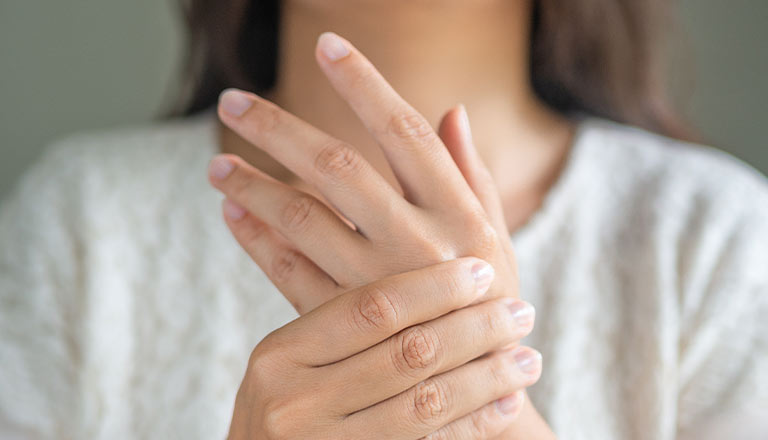
Diagnosis of psoriatic arthritis can be noticed in manicure
Nails with a different appearance, often confused with fungal infections such as ringworm, may suggest signs of the disease, rheumatologist warns
Many people who have deformations such as whitish spots, ripples and even “holes” in the nails treat them as a fungal infection, without success. That’s because the diagnosis is wrong.
According to rheumatologist Luiza Fuoco Rocha, from Imuno Brasil, signs like these, although they are easily confused with other illnesses, may suggest the diagnosis of psoriatic arthritis.
“Psoriatic arthritis is a chronic inflammatory disease that affects joints, tendons and spine causing pain, deformity, fatigue and great impact on the quality of life of patients. In most cases, psoriasis skin lesions precede the joint manifestation, but occasionally they can appear later, appearing in hidden places (scalp, crease or genital regions) or in the nails” says Luiza.
The doctor also points out that other symptoms of this form of arthritis such as flaking, red lesions, pain in the fingers and legs can be recognized during a moment of care, such as going to the manicure.
And that if they are perceived, the ideal is to look for a rheumatologist for complete evaluation and diagnosis. This is mainly because the treatment for psoriatic arthritis, despite being carried out with the use of anti-inflammatories and immunosuppressants, is individual and warrants follow-up by a specialist.
“Biologics such as TNF alpha, IL17i, 12/23i and IL23i inhibitors have shown clear benefit in controlling the signs and symptoms of psoriasis and psoriatic arthritis. By blocking these substances, we observed a reduction in joint pain and inflammation, resolution of skin inflammation, and interruption of the processes that lead to joint destruction .”
Early diagnosis and treatment is critical, as the natural course of the disease can progress rapidly. Among the care are stress control, physical activities and psychological follow-up.
It is worth remembering that none of these symptoms are contagious, and that the disease can affect men and women equally. “That’s why it’s important to pay attention to all the signs”, concludes Luiza Fuoco Rocha.
About Dr. Luiza Fuoco: Specialist in rheumatology and regional director of Imuno Brasil, graduated in medicine from the State University of Rio de Janeiro and doctor from the Faculty of Medicine of USP. Member of the SBR psoriatic arthritis commission and member of GRAPPA.